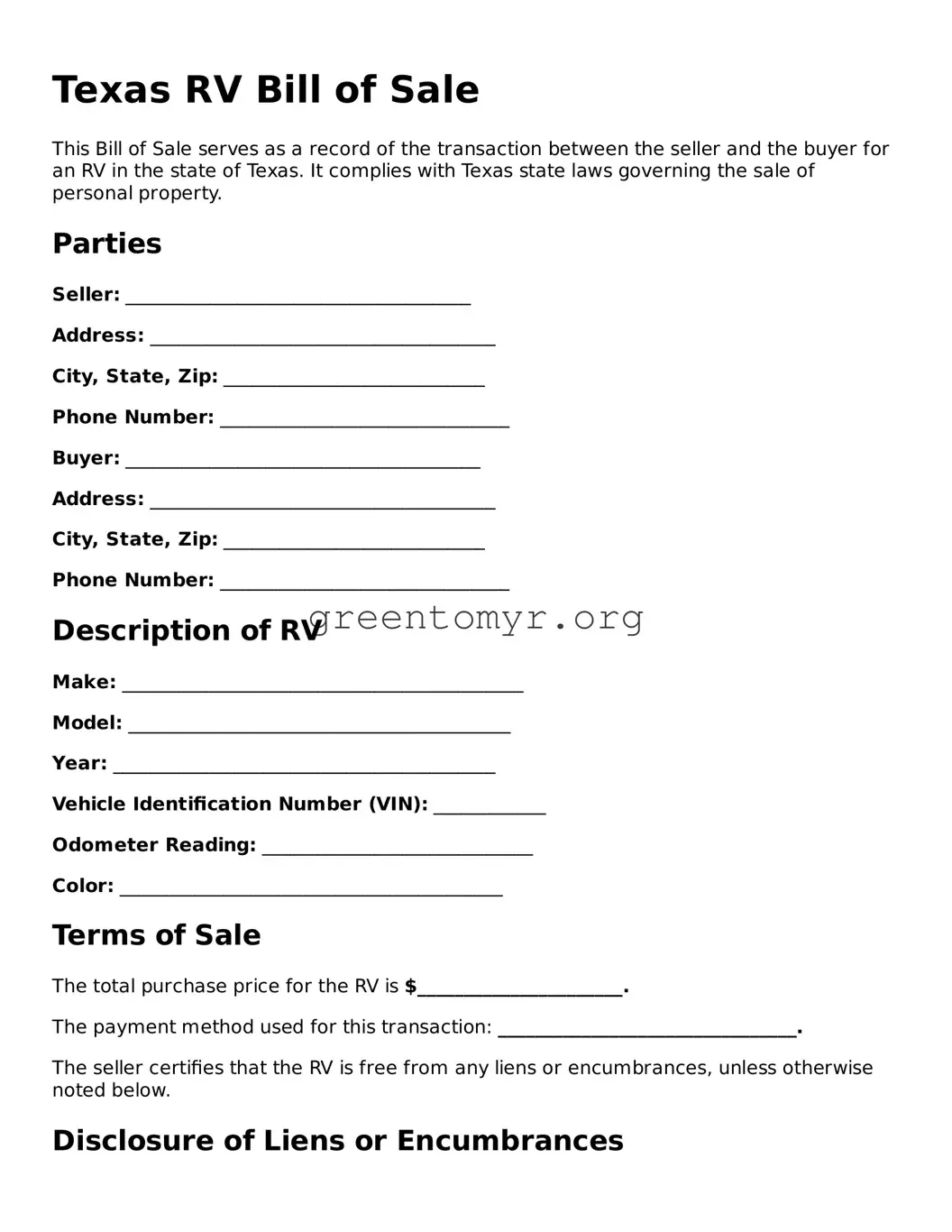Texas RV Bill of Sale
This Bill of Sale serves as a record of the transaction between the seller and the buyer for an RV in the state of Texas. It complies with Texas state laws governing the sale of personal property.
Parties
Seller: _____________________________________
Address: _____________________________________
City, State, Zip: ____________________________
Phone Number: _______________________________
Buyer: ______________________________________
Address: _____________________________________
City, State, Zip: ____________________________
Phone Number: _______________________________
Description of RV
Make: ___________________________________________
Model: _________________________________________
Year: _________________________________________
Vehicle Identification Number (VIN): ____________
Odometer Reading: _____________________________
Color: _________________________________________
Terms of Sale
The total purchase price for the RV is $______________________.
The payment method used for this transaction: ________________________________.
The seller certifies that the RV is free from any liens or encumbrances, unless otherwise noted below.
Disclosure of Liens or Encumbrances
Liens or Encumbrances: __________________________.
Signatures
Both parties agree to the terms outlined in this Bill of Sale. The seller certifies that the information provided is true and accurate to the best of their knowledge.
Seller's Signature: ____________________________ Date: ______________
Buyer's Signature: ____________________________ Date: ______________
Witness (if applicable)
Name: ______________________________________
Signature: _________________________________ Date: _____________
